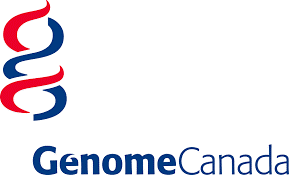Genomic Applications Partnership Program
Funded Projects – Round 7
The Genomic Applications Partnership Program (GAPP) funds transnational research and development projects that address real-world challenges and opportunities as identified by industry, government, not-for-profits, and other “receptors” of genomics knowledge and technology. The following five projects have been selected for funding in Round 7 of GAPP, for a total investment of $17 million ($6 million from Genome Canada and $11 million from co-funding partners including provincial governments, private sector and not-for-profit organizations). Backgrounders on previous projects funded under the program are available on Genome Canada’s website.
Development of Genomic Crossbred Estimate Breeding Values (GCEBV) to maximize profitability for Canadian pork producers
 Project leaders:
Project leaders:
- Robert Kemp, Genesus Inc. (receptor);
- Graham Plastow, University of Alberta (academic)
Genome Centre: Genome Alberta
Total funding: $3.4 million
Pork producers in Canada buy their breeding stock and genetic material from pig genetic companies such as Genesus Inc. Their profitability, as well as that of Genesus, depends on the ability to create and
transfer genetic improvements from the nucleus purebred population to commercial crossbred animals. Presently, the selection of desirable purebred animals is done using Estimated Breeding Values (EBVs), a measure of presumed genetic fitness that incorporates phenotypes and pedigree information of the animals. However, with EBV tools, only about 70 percent of the genetic improvement transfers
to commercial crossbred animals.
Genesus is working with Dr. Graham Plastow of the University of Alberta to develop and validate GCEBV, or Genomic Crossbred Estimate Breeding Values. Adding genomics to the EBV selection tool is expected to increase the accuracy of the EBV tool by 20 percent. Further, adding phenotypes and genotypes of commercial crossbred animals will increase genetic improvement by another 30 per cent, for a total increase of 50 percent improvement in the transfer of genetic improvements to commercial producers. A successful project will increase Genesus’ competitiveness while having an economic impact on the industry of $17.25 million per year within five years of project completion. In addition, improvement in the feed conversion ratio of pigs because of the genetic improvements would reduce the land footprint of pork production, releasing more land for human food production.
Categorised in: Featured News, Press Releases
This post was written by Genesus



